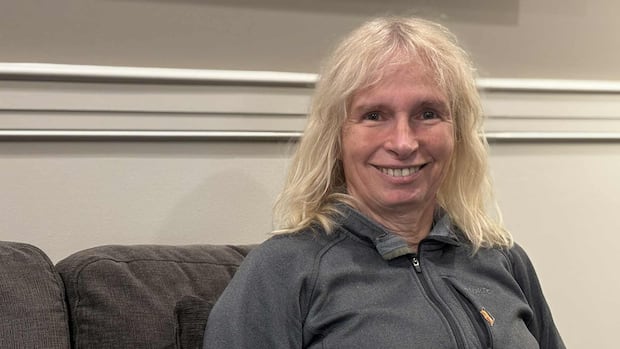Science
Canadian Researcher Returns Home After U.S. Study Funding Cut

A Canadian researcher has returned to her homeland after her study on transgender athletes faced significant backlash and funding loss in the United States. Joanna Harper, known for her two decades of research on the effects of hormone therapy on athletic performance in transgender individuals, recently transitioned from a project in Portland, Oregon, to Western University in London, Ontario.
In early 2024, Harper initiated a five-year project focused on evaluating fitness performance levels in transgender youth, specifically examining the impacts of puberty blockers and hormone therapy. However, after just 18 months, the project was abruptly terminated. Harper attributes this disruption to the political climate following the election of Donald Trump, stating, “Once Trump got elected, it was certainly understood by all of us that many things concerning trans people in the U.S. were in danger.”
During his presidency, Trump signed several orders that negatively affected the transgender community, including measures that defined gender strictly according to biological sex at birth and a ban on transgender women participating in women’s sports. Additionally, the U.S. government enacted significant cuts to scientific research funding, which had a direct impact on Harper’s project, originally supported by Nike and a collaboration among four American institutions.
Spring 2024 saw the cessation of funding for Harper’s study, leaving her research unfulfilled. Although the U.S. government did not directly terminate her project, Harper believes that the prevailing anti-trans sentiment contributed to its demise. “I certainly don’t blame Nike. I blame the people who put political pressure on Nike,” she remarked.
Transition to Canada
With no viable options to continue her research in the U.S., Harper relocated back to Canada, where she resumed her academic career at her alma mater, Western University. As an adjunct professor, she aims to pursue further studies on transgender athletes from a more supportive environment.
In a statement, Florentine Strzelczyk, provost and vice-president of academics at Western University, emphasized the institution’s commitment to attracting international talent. The university has also introduced a program offering up to $160,000 over four years to support post-doctoral students previously affiliated with U.S. institutions, recognizing the impact of recent funding cuts.
Despite the challenges she has faced, Harper remains resolute in her mission. She first became interested in research on transgender athletes during her own transition in 2004, noting significant changes in her running speed. “I was running 12 percent slower, and I’m a pretty serious runner,” Harper explained. “I had lost my complete male advantage, if you will, within nine months of hormone therapy.”
Future Research Goals
Due to the limited data collected during her previous project, Harper finds herself starting over. While the details of her new study are still being finalized, she plans to engage with local transgender athletes to better understand their evolving athletic capabilities. “I don’t know what the future holds for me, but certainly no trans research will be done in the U.S. until at least 2029, and even then, the future is somewhat fraught,” she noted.
As Harper embarks on this new chapter at Western University, her dedication to advancing knowledge about transgender athletes remains steadfast, highlighting the need for continued research in a field that has become increasingly contentious.
-

 Politics3 weeks ago
Politics3 weeks agoSecwepemc First Nation Seeks Aboriginal Title Over Kamloops Area
-

 World4 months ago
World4 months agoScientists Unearth Ancient Antarctic Ice to Unlock Climate Secrets
-

 Entertainment5 months ago
Entertainment5 months agoTrump and McCormick to Announce $70 Billion Energy Investments
-

 Lifestyle4 months ago
Lifestyle4 months agoTransLink Launches Food Truck Program to Boost Revenue in Vancouver
-

 Science5 months ago
Science5 months agoFour Astronauts Return to Earth After International Space Station Mission
-

 Technology3 months ago
Technology3 months agoApple Notes Enhances Functionality with Markdown Support in macOS 26
-

 Top Stories2 months ago
Top Stories2 months agoUrgent Update: Fatal Crash on Highway 99 Claims Life of Pitt Meadows Man
-

 Lifestyle3 months ago
Lifestyle3 months agoManitoba’s Burger Champion Shines Again Amid Dining Innovations
-

 Politics4 months ago
Politics4 months agoUkrainian Tennis Star Elina Svitolina Faces Death Threats Online
-

 Sports5 months ago
Sports5 months agoSearch Underway for Missing Hunter Amid Hokkaido Bear Emergency
-

 Politics4 months ago
Politics4 months agoCarney Engages First Nations Leaders at Development Law Summit
-

 Technology5 months ago
Technology5 months agoFrosthaven Launches Early Access on July 31, 2025




















